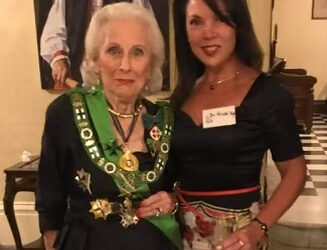All cancers fall into just two categories, according to new research from scientists at Sinai Health, in findings that could provide a new strategy for treating the most aggressive and untreatable forms of the disease.
In new research out this month in Cancer Cell, scientists at the Lunenfeld-Tanenbaum Research Institute (LTRI), part of Sinai Health, divide all cancers into two groups, based on the presence or absence of a protein called the Yes-associated protein, or YAP.
Rod Bremner, senior scientist at the LTRI, said they have determined that all cancers are present with YAP either on or off, and each classification exhibits different drug sensitivities or resistance.
YAP plays an important role in the formation of malignant tumours because it is an important regulator and effector of the Hippo signaling pathway.
“Not only is YAP either off or on, but it has opposite pro- or anti-cancer effects in either context,” Bremner said. “Thus, YAPon cancers need YAP to grow and survive. In contrast, YAPoff cancers stop growing when we switch on YAP.”
Many YAPoff cancers are highly lethal. In their new research, Bremner and fellow researchers from the Roswell Park Comprehensive Cancer Center in Buffalo, NY, show that some cancers like prostate and lung can jump from a YAPon state to a YAPoff state to resist therapeutics.
When cancer cells are grown in a dish in a lab setting, they either float or stick down.
The team of researchers found that YAP is the master regulator of a cell’s buoyancy, where all the floating cells are YAPoff, and all the sticky cells are YAPon.
Changes in adhesive behaviour are well known to be associated with drug resistance, so their findings implicates YAP at the hub of this switch, explained Bremner.
Joel Pearson, co-lead author and a post-doctoral fellow in the Bremner Lab at the LTRI, said therapies that tackle these cancers could have a profound effect on patient survival.
“The simple binary rule we uncovered may expose strategies to treat many cancer types that fall into either the YAPoff or YAPon superclasses,” Pearson said. “Moreover, since cancers jump states to evade therapy, having ways to treat either the YAPoff and YAPon state could become a general approach to stop this cancer from switching types to resist drug treatments.”
The researchers hope by deducing common vulnerabilities of these types of cancer, it may be possible to develop new therapeutic approaches and improve patient outcomes.
Secure Your Seat at FECRI Lady Potter Patron’s Lunch event on Friday 27th October 2023 at Sofitel, Melbourne.
Join Dr. Nicole Yap for an unforgettable experience… Are...
A Night of Cinema and Charity: The British Film Festival Partners with ABCC
The world of cinema has always been a magical escape, a...
Dream Big with Fiona Elsey Cancer Research Institute
It was during a bike riding tour that Dr. Nicole stumbled...



